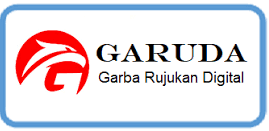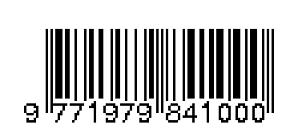PENGARUH PERBEDAAN INDIVIDUAL TERHADAP KEAHLIAN DALAM END USER COMPUTING
DOI:
https://doi.org/10.34151/technoscientia.v0i0.2048Keywords:
End User Computing, Demographic, PersonalityAbstract
The model was tested to permanent employee of Private Colleges wich have im-plemented on line computerization system, with 202 samples wich categorized into cle-rical group as much as 91 samples, non clerical group as much as 111 samples, total ob-served group as much 202 samples. Problem this research do the demographic factors (age, sex, education, experience) and personality (computer anxiety, computer attitudes, math anxiety) have a significant influence skill in end user computing. The test is done in four steps i. e, non respones bias test, reliability and validity test, inter variable correla-tion, hypothesis test with multiple regression and the data analysis is conducted by using SPSS program version 1.0 for windows. The reserach results showed that demographic factors (age, sex, experience) had directly effect into expertise in end user computing. Personality factors such com-puter anxiety (efar – anticipation) ; computer attitude (intimidation) had directly effect to expertise in end user computing. A quite surprising result was demographic factor of education, and personality factors of computer attitude (pessimism – optimism); of math anxiety was undequately significant to expertise in end user computing. For increasing work’s result in environment with introduction of new technology of on line computerization system above, it is considered in decision making recruitmen hu-man resource with related to envollment, implementation of computer training and edu-cation for their permanent employee. The preparation of adequate faciloities was hopped to increase individual performance.
References
Doll W.J., and Torkzadech, G, The Measurement Of End User Computing Satisfaction, MIS Quarterly, Juni, 1988, pp. 259- 274.
Fisbein, M. dan I. Ajzen. 1975. Belief, Attitude, Intention And Behavior : And Introduction To Theory And Research, Addition Wesley, Massachusetts.
Ghozali, I., 2001, Aplikasi Analisis Mul-tivariate dengan program SPSS, edisi pertama, Badan Penerbit Universitas Diponegoro, Sema-rang.
Gujarati, DN. 1995, Basic Econometries, Singapore, McGraw-Hill Book Co.
Harrison, A.W., and K.Rainer, The in-fluence Of Individual Differences In End User Computing”, journal of MIS, 9,1. Summer, 1992, 93-111.
Igbaria, M. and Parasuraman, S., ”A Path Analytical Study of Individual Cha-racteristic Computer Anxiety And Attitude toward Micro Computer”, Journal of Management, 15.3, 19 89, 73-388.
Larsen, T., Middle Managers Contribu-tion To Implementation Information Technology Innovation, Journal of Management Information System, 10, 1993, pp. 155 - 176.
Rifa ,D., Gudono, Pengaruh Faktor De-mografi Dan Personality Terhadap Keakhlian Dalam End User Com-puting, Jurnal Riset Akuntansi In-donesia, vol. 1, no. 2 Juli, 1998, 20 - 34.
Tribowo, 2001, Pengaruh Faktor Perso-nality Dan Profesional Commit-ment Terhadap Keahlian Compu-ter Audit”, tesis S-2 Undip, tidak dipublikasikan.
Wilkinson, J.W., and Michael J. Cerullo, 1993, Accounting Information Sys-tem : Essential Concepts And A-pplications, 3rd Edition, John Willey and Sons Inc., USA.







